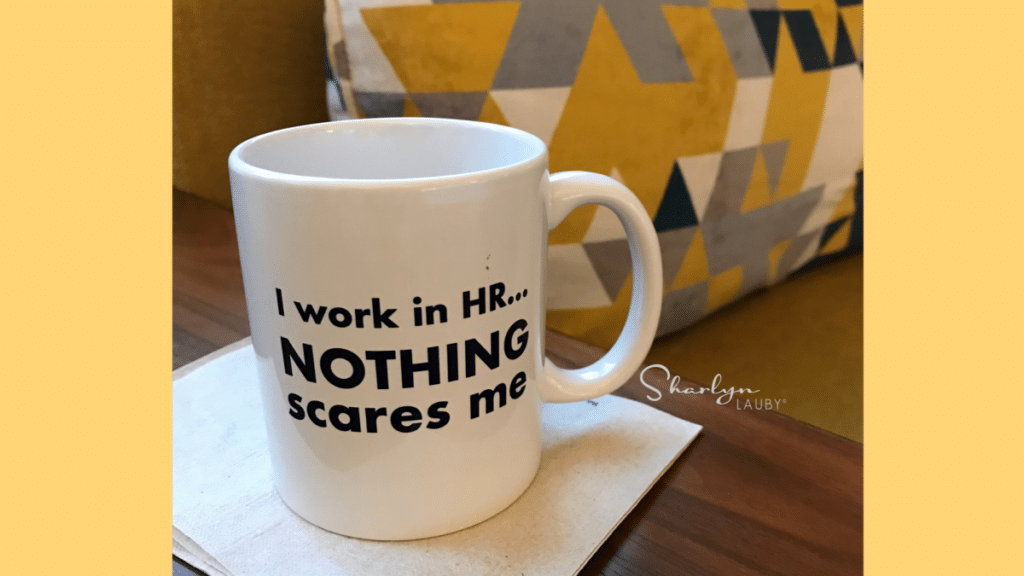How to Get Your First Job In Human Resources – Ask #HR Bartender

This is a great reader question about how to start a human resources career.
Hey Sharlyn, I really enjoy your blog and had a question for you. I’m currently a college senior looking to break into the HR field. What type of employment would offer the best opportunity to learn and grow? I’ve been thinking about recruitment or inclusion and diversity work. Any advice would be appreciated! Thank you!
My start in human resources wasn’t through the normal career path. After an auto accident left me physically unable to do my job, the company I worked for transferred me into human resources. And the company provided me with training to be successful. So, I certainly wouldn’t recommend that anyone go through what I did to get into HR.
But I reached out to a friend to get his insights. Steve Browne, SHRM-SCP has devoted his career to the profession. He’s currently vice president of human resources for LaRosa’s, Inc., a regional pizzeria restaurant chain based in Ohio. And he’s on the board of directors for the Society for Human Resource Management (SHRM). I’ve had the pleasure of knowing Steve for years and was delighted he agreed to share his thoughts with us.
Steve, based on your experience, how difficult is it to enter the HR field?
[Browne] There are a few ways to look at this. I think entering an aspect of HR is fairly easy. Many people start out in recruiting. This is a great way to get experience and learn about the nuances of working with people, sourcing talent, and adding folks to an organization to make them better.
Getting directly into the field of HR as a generalist is harder. It shouldn’t be, but it is. It’s ironic that we expect ‘experience’ to be a generalist, but we are hesitant to give people new to HR a chance. We end up doing the same thing other professions do.
I’d love to see HR be more open in having new, interested people join the profession willingly and intentionally. Too often we hear about people ‘falling into’ HR. That works because many people have ‘enjoyed the fall’. It would be even better though if HR was a choice and not something that happened by chance.
Let’s expand on the generalist and specialist aspect. For people thinking about an HR career, would you suggest they start as a specialist or a generalist?
[Browne] The key here is that a person needs to know themselves first. Having a solid grasp of your strengths, your personality, and your approach is needed before pursuing a specialist or generalist role. Self-awareness is far more important for a person at any stage of their career versus picking one type or another.
Personally, I enjoy the generalist side of HR because I need to have a broad base of experiences and exposure to a variety of people at all levels of the company in order to feel fulfilled. A specialist is someone willing to be more focused and narrow in their role. Both generalists and specialists are valuable ways to practice HR.
You mentioned that it could be easier if someone started off as a specialist. If someone decided to do that, how should they go about choosing their area of expertise?
[Browne] Ask yourself – what fills your bucket? If you’re comfortable in a data/numbers arena, then look at roles that range from HR data analytics to compensation analyst. If you’re more adept at explaining skills and work to others, consider organizational development and/or learning and development roles.
What’s key here, and really in any role, is asking, ‘Can I leverage my strengths in order to add value to the company and the employees?’ When you work from your strengths, you’re truly giving your best in all of your endeavors.
If someone could do only one thing a year to better their HR knowledge, what should they consider?
[Browne] Read. I mean it. Be a voracious reader. It’s been said ‘Leaders are readers.’ Being a continuous learner is key because the field is evolving on a regular basis. It’s not enough to learn the HR101 skills and then stay put. Subscribe to blogs and read books about HR, business, creativity, etc. You can take most books and pull information/experiences out that can relate to practicing HR.
With podcasts now being so popular, I’d add subscribing and listening to them as well. It’s another way to stay fresh and relevant. It’s imperative that you keep growing personally and professionally.
Last question. When you think back on your HR career, what’s the one thing you know now that you wish you knew when you started?
[Browne] I wish someone had told me the power of having a network of peers. No one explained that having other professional connections was important. Networking is a foundational business skill, and not just a job searching ploy. Having peers you can go to with questions is priceless. You can get so much more accomplished by reaching out to others instead of trying to gut it out alone. HR is better when you a part of a community.
My thanks to Steve for sharing his experiences with us. If you would like to learn more about his HR philosophies, check out his blog Everyday People and pick up a copy of his best-selling book “HR on Purpose!!”. Believe me when I say you won’t be disappointed.
The good news is there are lots of different ways to enter the human resources profession. They all involve having an understanding of ourselves and how we can bring value to organizations.
Image capture by Sharlyn Lauby while exploring the streets of San Diego, CA
28